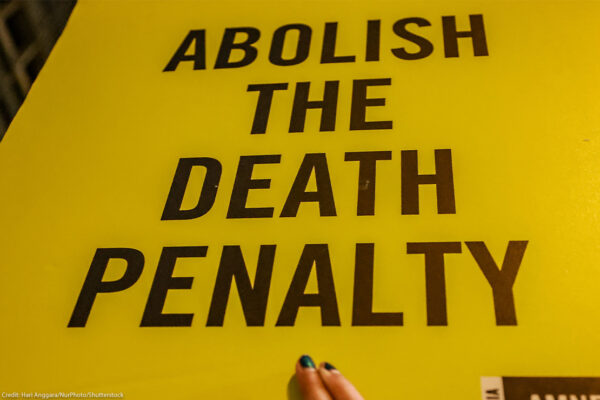
Last week, the Rhode Island ACLU announced its disappointment with a federal circuit court's decision overturning Gov. Lincoln Chafee's efforts to prevent the institution of federal death penalty charges against Jason Wayne Pleau, whom Rhode Island was already prosecuting in state court. We join that sentiment here.
Pleau has been charged with the robbery and murder of a gas station manager who was making a bank deposit. Rhode Island, like every other state, has laws designating these crimes as murder and robbery, courts in which to prosecute the crimes and prosecutors and defense attorneys ready to work the case. But because the victim was making a bank deposit, and bank robberies violate federal criminal statutes, the crime could also theoretically be prosecuted in federal court.
It was Rhode Island law enforcement that apprehended Pleau, and the state is prepared to imprison Pleau for life without parole in exchange for a guilty plea. Rhode Island was the second state in the Union to abolish the death penalty in 1852, and has not carried out an execution since then. In Gov. Chafee's view, Rhode Island should be able to prosecute Pleau consistent with this sensible criminal justice policy choice and, if successful, imprison him for life for his crimes.
Sounds reasonable, right? Well, not to the federal government. To win the opportunity to execute Pleau, the federal government went to great lengths to bring him into custody. It first requested that Rhode Island transfer him to federal custody. When Gov. Chafee declined this request, the federal government doubled down by filing a federal order requiring the transfer. When Gov. Chafee refused to honor the order, the case went to court.
The decision from the 1st Circuit Court of Appeals involves some complex federal statutory questions and reportedly will be appealed. If upheld, the decision would result in Pleau's transfer to federal custody — where he could possibly face the death penalty.
When local government is unable or unwilling to protect civil rights and uphold the Constitution, the federal government has an appropriate role to play in safeguarding fundamental freedoms. For example, the ACLU has asked the federal government to investigate runaway police departments that violate the law rather than upholding it. This role is both historic and vital.
But a state does not violate fundamental rights when it chooses not to impose the death penalty, and it does not threaten public safety when someone who pleads guilty to murder is imprisoned for life. There was absolutely no reason for the federal government to interfere with that state-based decision in the Pleau case. To the contrary, Rhode Island's longstanding rejection of the death penalty has been joined in recent years by Connecticut, Illinois and New Mexico, and the overwhelming majority of modern nations.
It is unfortunate that the United States government is not yet willing to embrace that decision. At the very least, it should not be undermining it.
Learn more about death penalty: Sign up for breaking news alerts, follow us on Twitter, and like us on Facebook.


